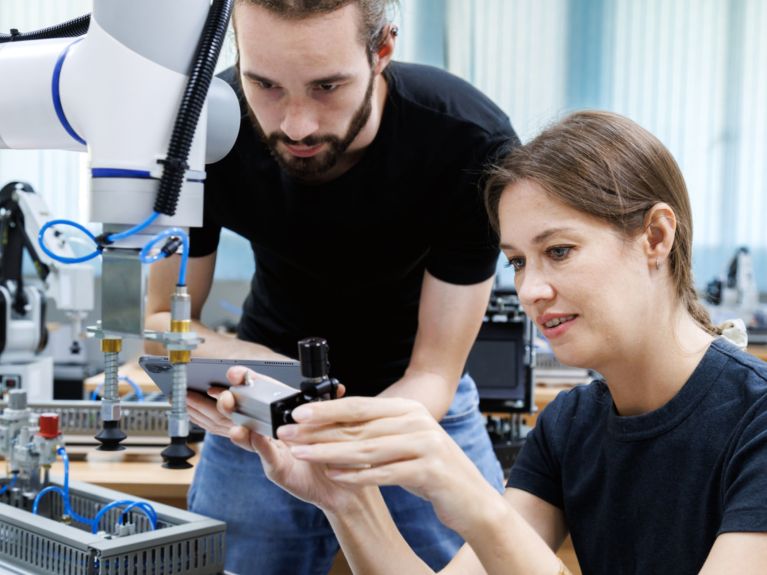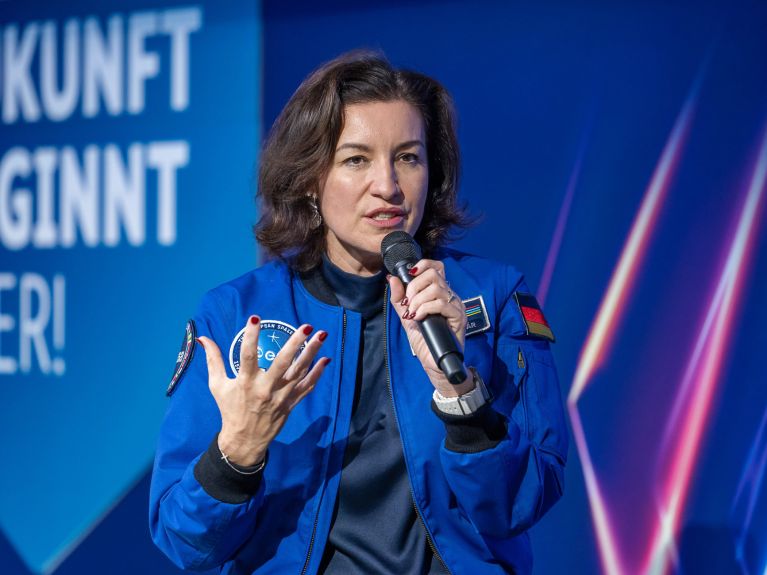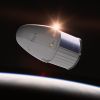Heading towards the future
The German government’s new High-Tech Agenda pools expertise in six key technologies - from AI to fusion research.

Let the future come. With the High-Tech Agenda it has just adopted, the German government plans to fire up the innovation engine and secure Germany’s technological competitiveness. Six promising fields of technology are in the spotlight: artificial intelligence, quantum technologies, microelectronics, biotechnology, fusion research and climate-neutral energy and mobility. Flagship projects with binding milestones are planned for each field - from quantum computers to hydrogen technologies. “We want to go from being top-class in research to being top-class competitors once again,” said Research Minister Dorothee Bär.
From research to application
The objective of the Agenda is to ensure that scientific knowledge finds its way into practice more quickly. In the area of artificial intelligence, it’s all about creating advanced and safe applications for industry, healthcare and administration. When it comes to microelectronics, European value chains are to be strengthened in order to reduce dependence on Asia. Biotechnology stands for new treatments and vaccines, while fusion research is intended to prove the feasibility of climate-neutral energy. And in the field of quantum technologies, the aim is to have a powerful quantum computer operational in Germany by 2030.
Funding and framework conditions
The Agenda isn’t just a strategy paper, its also a funding promise. The 2025 federal budget includes 22.38 billion euros for Dorothee Bär’s ministry - nearly a billion more than last year. 18.7 billion euros of this total will be for allocations and grants, while 3.9 billion euros will be spent on investment. “We will invest more in future technologies and create better framework conditions and incentives,” said Bär. New instruments to foster innovation are planned, as is a reduction in bureaucracy when it comes to technology transfer.

Monitoring progress
In the autumn of 2025, a large-scale process will be launched that will see actors in the areas of science, business and society draw up concrete timetables. All of this will be thoroughly monitored to highlight both progress and shortcomings. The High-Tech Agenda is intended to demonstrate that research leads to progress and ideas lead to innovations that will strengthen Germany - and provide answers to the major questions of our time.


